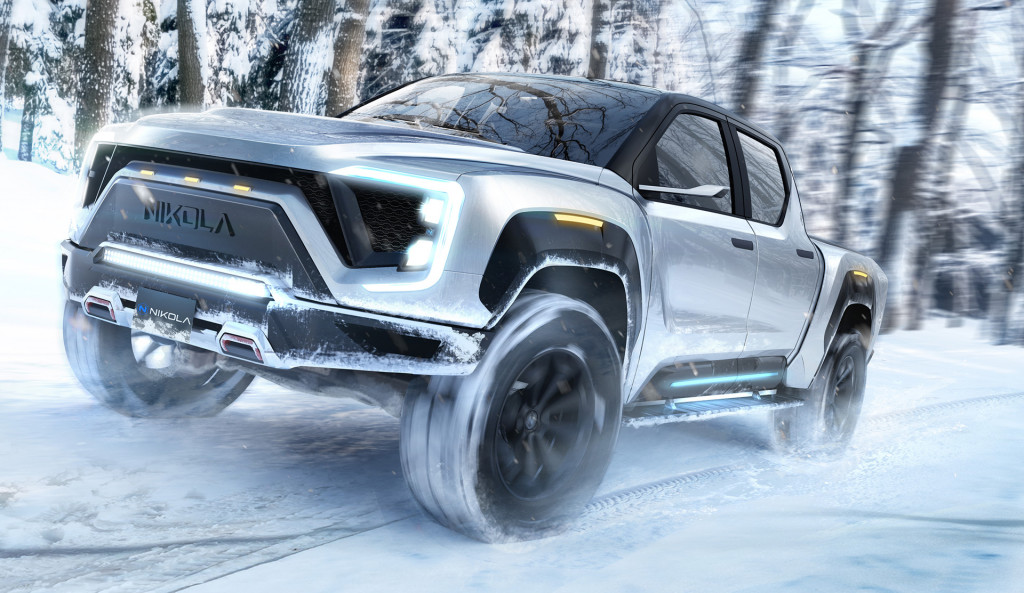In November, just after the reveal of the Tesla Cybertruck, Nikola CEO Trevor Milton picked the perfect time for the glimpse of Nikola’s pickup designed “to hit a broader market.”
At that time Milton teased Tesla CEO Elon Musk over Twitter that he was “happy to let you build it since we won’t.”
Hey @elonmusk we don't build cars or trucks, but I'm happy to donate this truck design if your team wants to hit a broader market. My team designed it just in case and I'm happy to let you build it since we won't. Let me know and we can talk pic.twitter.com/c5PaHFXTEe
— Trevor Milton (@nikolatrevor) November 22, 2019
That turns out to be a clever stretch of the truth (or at least the intent). Nikola does plan to build the truck, it announced Monday—with a yet-undisclosed on-sale date, and through an OEM partnership not yet revealed—and perhaps most notably, it will have a range of up to 600 miles.
That range comes from having essentially two energy storage systems on board: a hydrogen tank and fuel cell, as well as an electric-vehicle battery.
Nikola says that the Badger comes with a 15-kw power output that can run for 12 hours—enough to replace a mobile generator in many cases. The Badger is also, it says, designed “to handle what a construction company could throw at it” while also being capable of outperforming other all-electric trucks on the market—future ones, we’re assuming, as there are none now.
The Badger can go 300 miles individually on a full charge of the battery when hydrogen isn’t available, but it appears to offer peak performance that’s right in the vicinity of Rivian or the Tesla Cybertruck: 2.9 seconds to 60 mph, or capable of towing an 18,000-pound trailer from a standstill up a 30% grade.

Nikola Badger
Through “advanced blending of batteries and fuel cell,” Nikola says that it can operate on grades of up to 40% and do repeated 0-100-mph launches without a loss in performance. It also mentions the truck's hardiness in temperature extremes—long a barrier for fuel-cell technology.
Part of that is due to the Badger’s use of a supercapacitor system—so far a trick that’s been reserved for supercars and a few other advanced-tech test vehicles.
Nikola claims up to 455 horsepower (or 906 hp peak) and 980 pound-feet of torque. The battery pack is a 160-kwh lithium-ion one, while the fuel cell can put out 120 kw.
If and when the truck makes it to market, the whole industry will likely study how Nikola drivers balance the use of hydrogen and plugging in. Toyota told us recently that it avoided the possibility of installing both fuel-cell tech and a sizable battery with plug-in range in its Mirai because people would charge at home and not use the budding hydrogen infrastructure.
Nikola is currently planning its own network of 700 hydrogen filling stations, to be used by its fuel-cell semis. So the pickups could potentially make a good supplement to help justify the mammoth financial outlay required by that.
